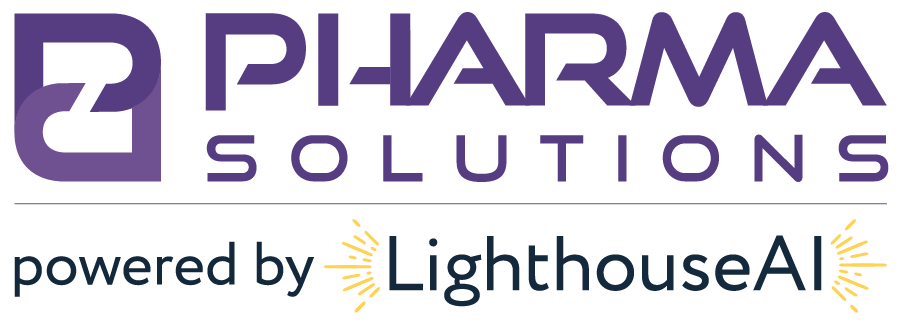OptumRx Network Policy: VAWD Requirement for Manufacturers and VDIP Accreditation
By now, OptumRx’s VAWD Accreditation requirement has become a ubiquitous part of the requirements for doing business in the pharmaceutical supply chain. In reading the policy, however, the requirements are not clear for manufacturers and those companies subject to VDIP® Accreditation.
What the Policy States
Purchases of covered Drug Products for any claims submitted to Administratormust be made from an NABP-VAWD® (Verified–Accredited Wholesaler-Distributors) licensed wholesaler as regulated by state and federal entities
. This requirement includes the purchase of non-legend items (e.g. OTC, supplies). Network Pharmacy Providers must be able to document the source is authorized to include federal/state licensure, oversight by regulatory agencies to include the Food and Drug Administration (FDA), DEA, and ability to obtain pedigree information for Drug Products. Network Pharmacy Provider must promptly comply with any requests to produce such documentation.¹
Wholesaler, manufacturer, and distributor invoices and other purchase invoices and documents must be accessible, maintained for a minimum of five (5) years or as required by law or regulation and ten (10) years in the case of Medicare Part D records to substantiate that the Drug Products dispensed were purchased from an authorized source regulated by the federal/state entities and NABP-VAWD® (Verified –Accredited Wholesaler [sic] Distributors), to include valid licensure in the state the Drug Product is dispensed. Purchases for any Clean Claims submitted to the Administrator must be made from a licensed wholesaler as regulated by federal/state entities.
Manufacturer Vendors
Diving deep into the language, there appears to be some ambiguity as to which entities the VAWD® requirements specifically apply. In both passages, reference is made specifically to “licensed wholesaler[s].”
²
Taken alone, this would suggest that OptumRx’s VAWD® requirements only apply to wholesalers and not other entities that may engage in distribution such as manufacturers or repackagers. If this were the case, this would be the possible loophole referenced in the opening statement: as long as a pharmacy purchases only from manufacturers and repackagers, it would not have to comply with the VAWD® requirement. Likewise, this would allow manufacturers and repackagers to sell to pharmacies without having to obtain VAWD® accreditation.
This is feasible because OptumRx specifically cites that the reason for their VAWD® requirement is to limit Fraud, Waste, and Abuse: it is likely that OptumRx is specifically targeting the practice of pharmacies “buying back” prescription drugs that have been reimbursed by insurance at a massive discount and then selling them to other pharmacies closer to market price. It is highly unlikely that manufacturers would ever engage in such a practice and therefore may excuse them from the requirement.
However, in the second paragraph, the language only makes reference to purchases “from an authorized source regulated by the federal/state entities and NABP-VAWD® (Verified-Accredited Wholesaler [sic] Distributors) to include valid license in the state the Drug Product is dispensed.” This language does not specifically identify wholesalers, but rather just uses the phrase “authorized sources.” This phrasing could then include not only wholesalers but also manufacturers, repackagers, or any other entity that a pharmacy sources product from. Manufacturers and repackagers are able to obtain VAWD® accreditation, so it would be possible for them to meet OptumRx’s VAWD® requirement. So, although a manufacturer or a repackager may not be a wholesaler, based solely on this language, it would appear that they could also be held to the VAWD® requirement.
Although this may just appear to be a minor stylistic distinction in drafting, it actually is a very important distinction to note. Depending on how OptumRx chooses to interpret this language could influence the decision of a whole subset of entities in the pharmaceutical supply chain to obtain VAWD®, a lengthy and costly process, solely for the purpose of meeting the OptumRx requirement. At this juncture, it is unclear whether OptumRx’s choice of language is intentional or the result of an error in drafting. Unless OptumRx definitively clarifies its interpretation of the above-mentioned passages, there is still a chance that it may turn out that it did intend to exclude manufacturers, repackagers, and other non-wholesalers from its VAWD® requirement.
However, it would be safe to assume the more restrictive interpretation controls, meaning that it should be assumed that all entities from which a pharmacy receives products must be VAWD® accredited.
VDIP Accreditation
Wholesaler, manufacturer, and distributor invoices and other purchase invoices and documents must be accessible, maintained for a minimum of five (5) years or as required by law or regulation and ten (10) years in the case of Medicare Part D records to substantiate that the Drug Products dispensed were purchased from an authorized source regulated by the federal/state entities and NABP-VAWD® (Verified –Accredited Wholesaler [sic] Distributors), to include valid licensure in the state the Drug Product is dispensed. Purchases for any Clean Claims submitted to the Administrator must be made from a licensed wholesaler as regulated by federal/state entities. This requirement includes the purchase of non-legend items (e.g. over-the-counter supplies). Network Pharmacy Providers must be able to document the source is authorized to include state or federal licensure, oversight by regulatory agencies to include the Food and Drug Administration (FDA) and DEA and the ability to obtain pedigree information for Drug Products.³
References
1. OptumRx 2018 Provider Manual at 95.
2. Id.
3. Id. at 96.
About Us
Based just outside of Philadelphia, Pharma Solutions provides actionable guidance and excellent administrative services with a focus on client care across Compliance, Commercial, and Quality solutions. Our mission is to improve the health and welfare of the American public by providing solutions and implementing best practices for companies in the pharmaceutical supply chain.




0 Comments